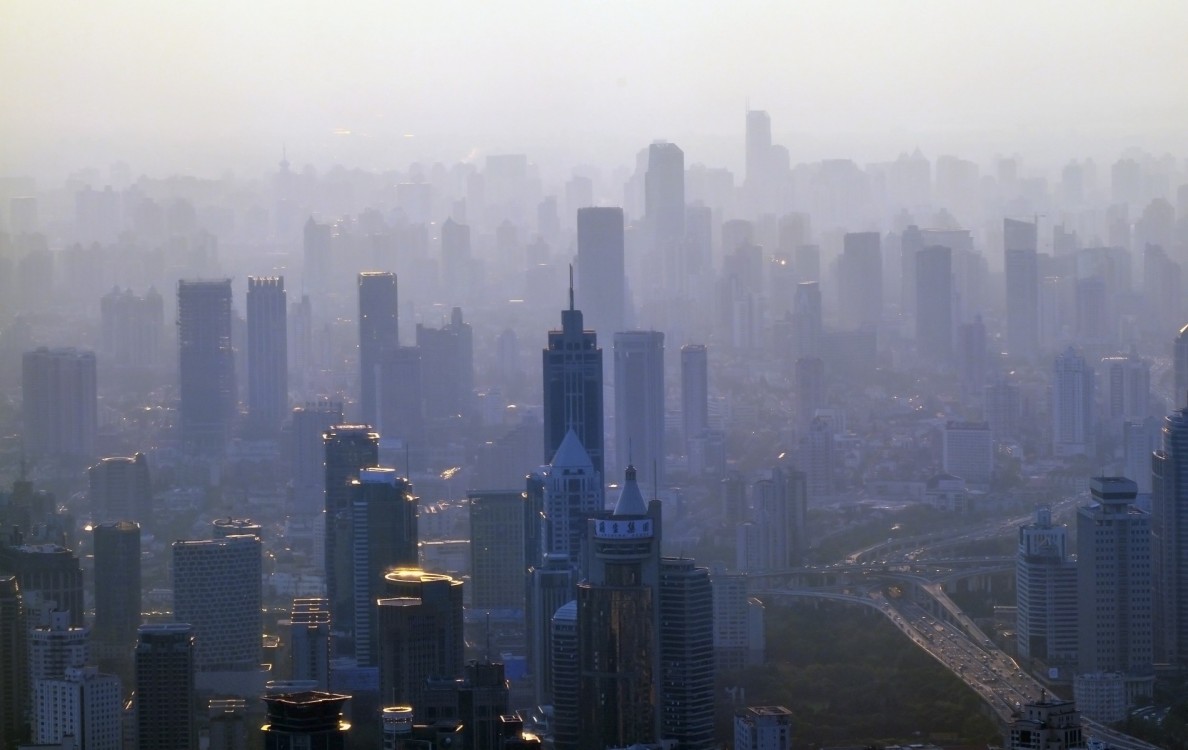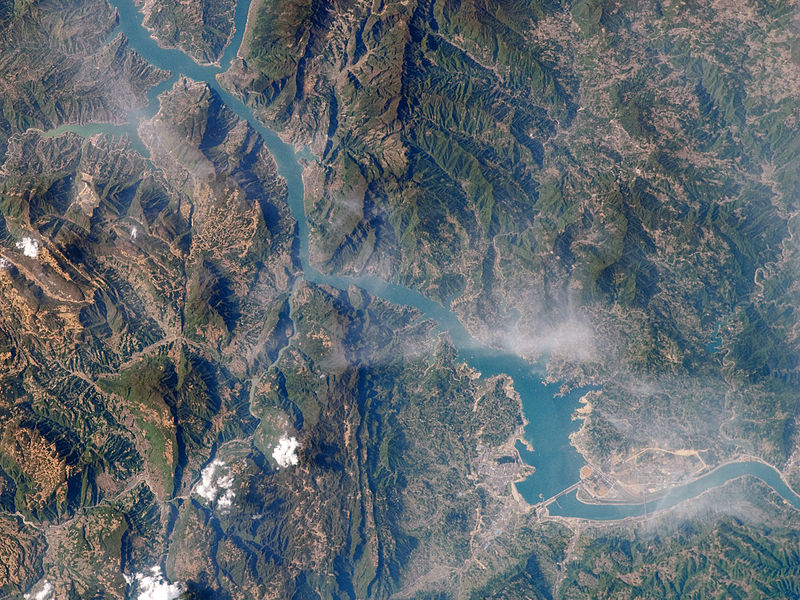Climate change is happening, it's almost entirely man's fault and limiting its impacts will require reducing greenhouse gas emissions to zero this century, the United Nation's Intergovernmental Panel on Climate Change (IPCC) said in a report published Sunday.
"Science has spoken. There is no ambiguity in their message. Leaders must act. Time is not on our side," U.N. Secretary-General Ban Ki-moon said at the report's launch in Copenhagen.
The report is meant to serve as a scientific roadmap for U.N. climate negotiations, which continue next month in Lima, Peru. The meeting will be the last major conference on the issue before a 2015 summit in Paris, where a global agreement on climate action is supposed to be adopted.
Governments can keep climate change in check at manageable costs, but will have to cut greenhouse gas emissions to zero by 2100 to limit the risk of irreversible damage, the U.N. report said.
The biggest hurdle is deciding who should do what, with developed countries calling on China and other major developing countries to take on ambitious targets, and developing countries saying the already developed have a historical responsibility to lead the fight against global warming and to help poorer nations cope with its impacts.
The IPCC carefully avoided taking sides on the issue, saying the risks of climate change "are generally greater for disadvantaged people and communities in countries at all levels of development."
The report, which was the fourth and final installment in the IPCC’s climate assessment, summed up 5,000 pages of work by 800 scientists who concluded that global warming was now causing more heat extremes, downpours, acidifying the oceans and raising sea levels.
Failure to reduce greenhouse gas output, produced by the burning of fossil fuels, to zero this century might lock the world on a trajectory with "irreversible" impacts on people and the environment, the report said.
Amid its grim projections, the report also offered hope, saying the tools needed to set the world on a low-emissions path – such as solar and wind energy generators – already exist.
"We have the means to limit climate change," IPCC chairman Rajendra Pachauri said. "All we need is the will to change, which we trust will be motivated by knowledge and an understanding of the science of climate change."
U.S. Secretary of State John Kerry called the report "another canary in the coalmine."
"The bottom line is that our planet is warming due to human actions, the damage is already visible, and the challenge requires ambitious, decisive and immediate action," Kerry said in a statement.
"Those who choose to ignore or dispute the science so clearly laid out in this report do so at great risk for all of us and for our kids and grandkids."
Pointing to solutions, the IPCC said the costs associated with mitigation action, such as shifting energy systems to solar and wind power and other renewable sources, would reduce economic growth only by 0.06 percent annually.
Pachauri of the IPCC said that cost should be measured against the implications of doing nothing, putting "all species that live on this planet" at peril.
*
Meanwhile, Renee Lewis reported for Al Jazeera America about the electoral impacts that the growing U.S. climate movement is having:
Environmental activists, backed by a billionaire philanthropist, have launched an unprecedented campaign to push voters to elect leaders this November who are willing to confront global warming.
The project, called NextGen Climate Action Committee, is intended to bring climate change to the forefront of American politics, environmentalists say. The nonpartisan group, founded by philanthropist Tom Steyer in 2013, is on track to spend more than $55 million during election season — an unparalleled amount for an environmentalist group.
“This November, it’s time for us to take a stand,” NextGen said on its website. “For far too long, special interests like Big Oil have operated with impunity, polluting our skies and our water, suppressing renewable energies like wind and solar, and contributing to a rapidly changing climate.”
To counter that influence, NextGen has funded a series of political ads focused on the climate, including one narrated by actor Woody Harrelson, who said: “They told us the world was flat and insisted it was the center of the universe. They ignored pollution, said that cigarettes were harmless, that leaded gas was safe … Now they tell us climate change is a hoax. Some powerful people want to hold us back.”
Progress has been made recently in transforming the issue into a national debate. Senate Democrats have successfully blocked efforts to scrap climate-friendly regulations. But if Republicans, some bankrolled by the fossil fuel industry, take back the Senate, they could roll back those hard-fought environmental safeguards, say activists.
Environmentalists, though, have reason for optimism, analysts say. While climate change was rarely mentioned in the 2012 presidential campaign, the 2014 elections appear poised to be the biggest yet for energy and environment-related television ads, according to Elizabeth Wilner of Kantar Media/CMAG, which tracks political advertising.
Targeting Climate Deniers
NextGen's campaign has supported candidates, elected officials and policy makers who have said they would take bold action on climate change. But the campaign is also designed to expose climate change deniers in television ads and on its website.
Florida Gov. Rick Scott, for example, has said, “I’ve not been convinced that there’s any man-made climate change … nothing’s convinced me that there is.”
But Florida is already seeing the effects of climate change, NextGen said, adding that 2.4 million people and 1.3 million homes are at risk from rising sea levels. The state has been called "ground zero for climate change" in America.
“With rising water already eating away at the coastline and threatening cities, Florida is largely considered ground zero for climate change in the United States,” Katherine Bagley, reporter for Inside Climate News, wrote in August.
“Increased flooding in Miami and Fort Lauderdale, disappearing beaches and endangered freshwater supplies are making climate change a top issue in the governor’s race, opinion polling shows.”
The contrast between Scott and his Democratic opponent, Charlie Crist, on environmental issues could tip the scales in one of the closest races this year, Bagley added.
To help push voters toward electing leaders that will take a stand on climate change, NextGen has partnered with people working against the effects of climate change in their communities to show the reality Americans could face without bold action.
A short documentary the organization produced, entitled “Emma’s Fight,” profiles a Michigan woman working to save her community from pollution and disease she believes have been caused by a tar sands refinery adjacent to her Detroit home.
Emma Lockridge, 61, said the tight-knit community she grew up in has been decimated by the constant pollution, which has caused property prices to tank — leaving residents with little hope of relocating.
Many residents have said they want out, and the community is suffering from a disproportionate occurrence of illnesses that Lockridge blames on the pollution. The zip code she lives in is widely believed to be the most polluted in the state.
“I think we’re infected with chemicals, and all of us are walking around like ticking time bombs,” Lockridge told Al Jazeera. “We’re just waiting for our cancer to come forward, our autoimmune disease or respiratory illness to present itself.”
She said what’s happening to her community could happen to anyone, as corporations take advantage of the lack of regulations and are effectively “allowed to kill people.”
“It’s really frightening that there are no guidelines to protect human health on fenceline communities … this is just the beginning, it just begins with us … at the end of the day the whole society will be polluted,” Lockridge said.
A “fenceline community” refers to a residential area located near an industrial zone that emits noise, chemicals or odors deemed hazardous to human health.
Until recently, pollution has disproportionately affected poorer, urban neighborhoods — which Lockridge called “sacrifice zones” because they suffer the consequences while corporations reap profits.
But now, she said, with the advent of hydraulic fracturing, or fracking — a controversial oil and gas extraction process that has been linked to pollution, earthquakes and some illnesses — wealthy and rural communities are being affected.
“They’re up in arms, they’re getting online and getting organized,” Lockridge said, adding that friends of hers, who had recently purchased a “beautiful” home in the countryside, now have a fracking site about 400 feet away.
“It’s starting to resonate now,” Lockridge said. “And we’re seeing it in the numbers, the way the races are tightening up here in Michigan.”
3 WAYS TO SHOW YOUR SUPPORT
- Log in to post comments













